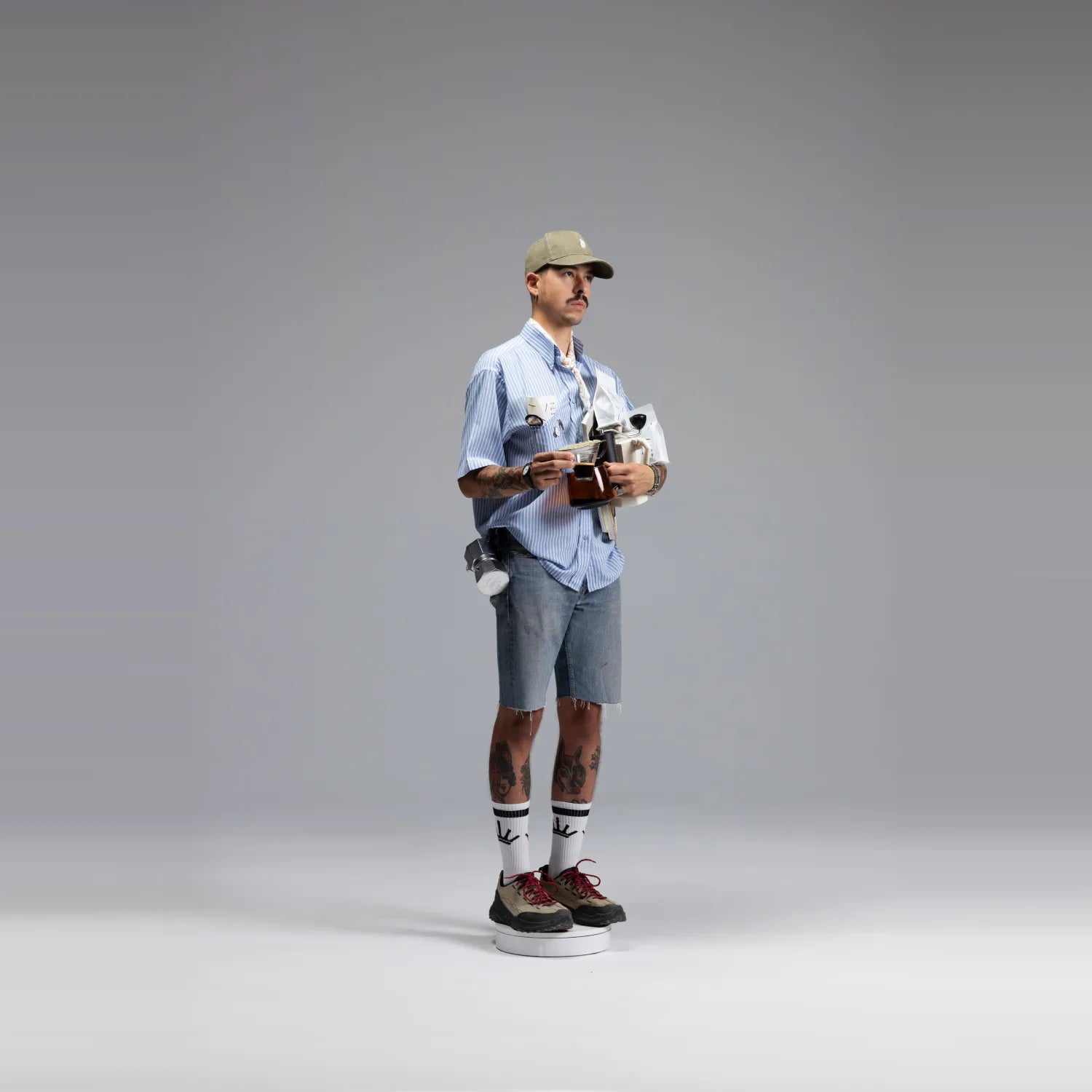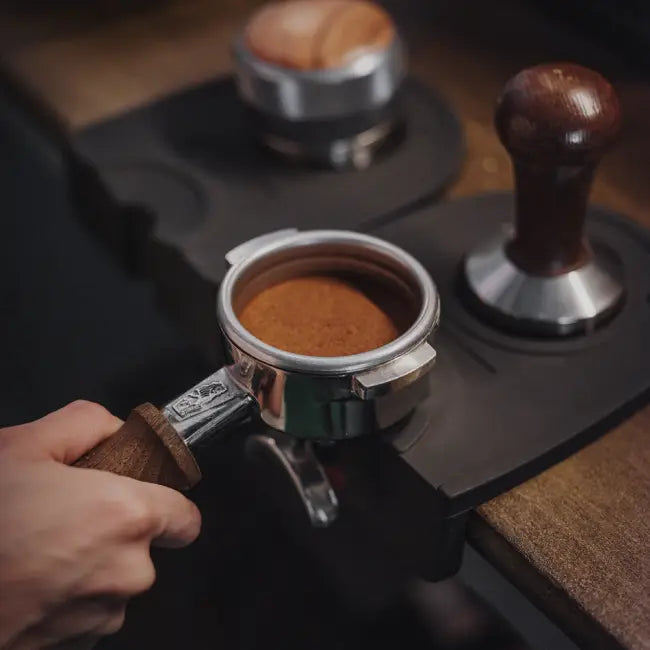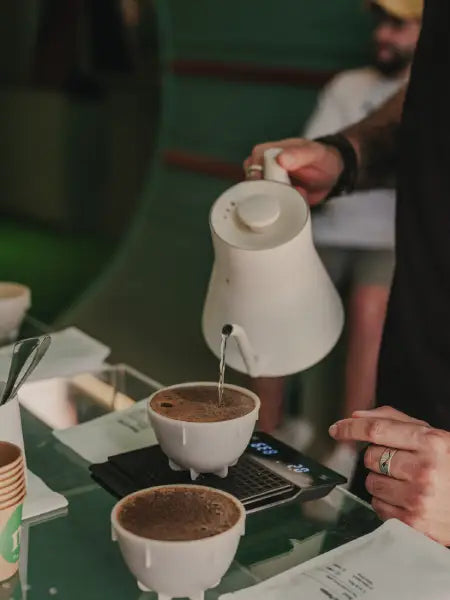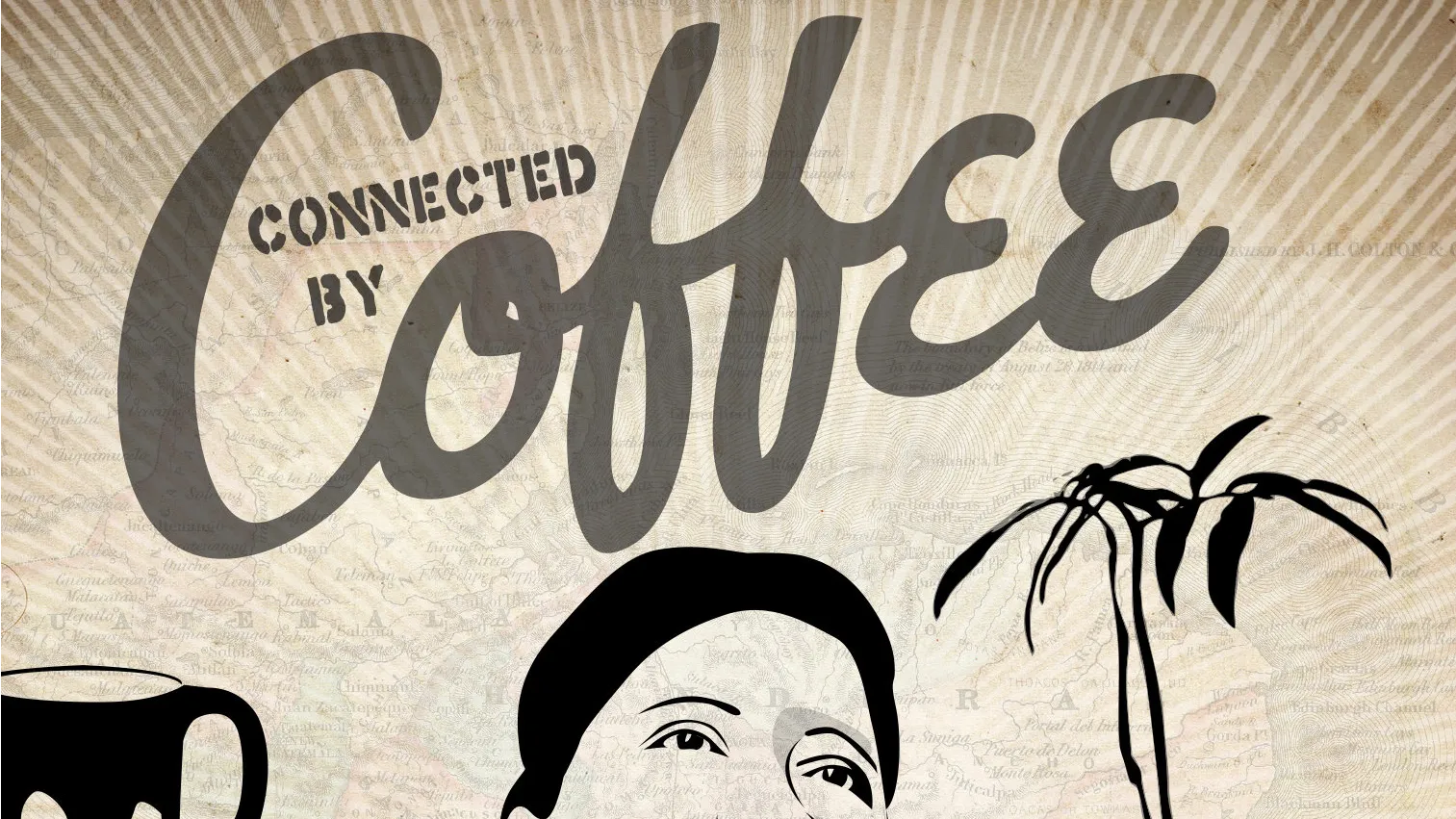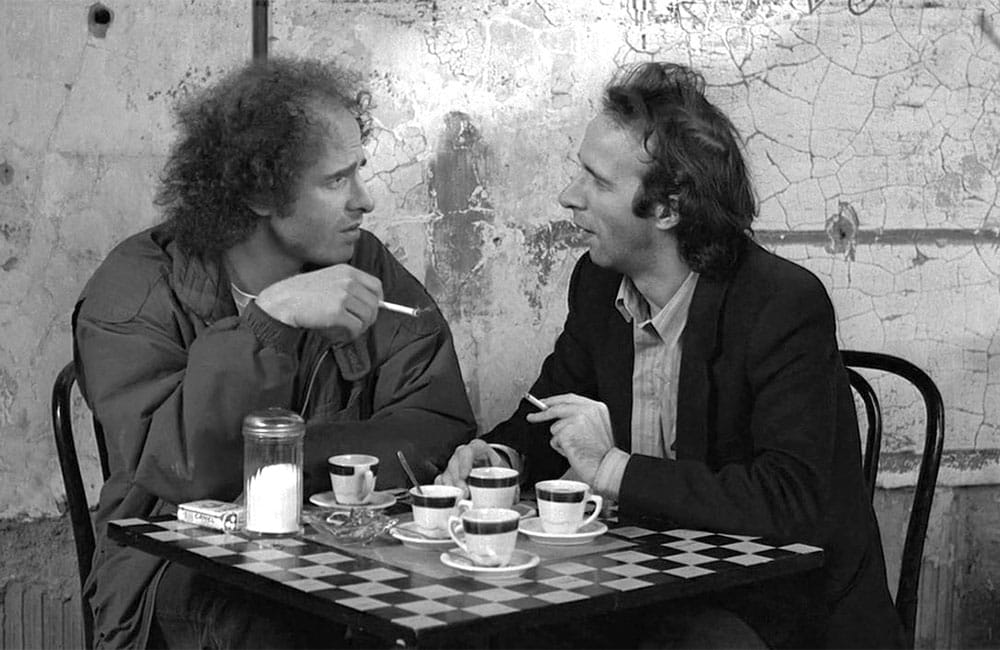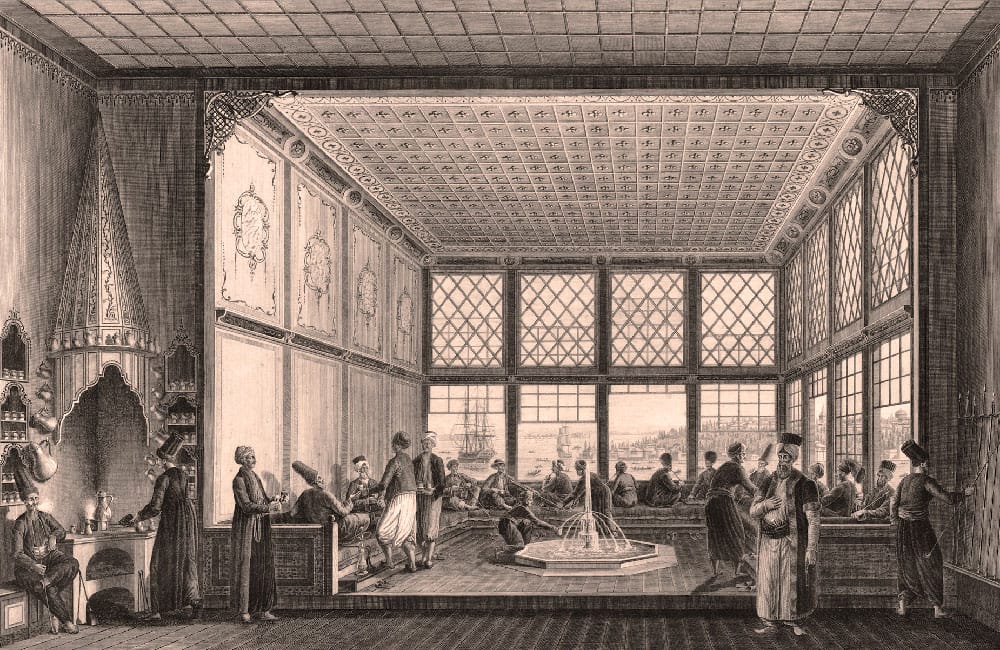10 documentales sobre café que tienes que ver
Los documentales son una excelente forma de educarse de una forma entretenida.
Nos ofrecen una visión a mundos que de otra manera no conoceríamos. Pueden contar grandes historias de una forma real, sin tener que sacrificar calidad audiovisual.
Desde documentales de naturaleza hasta los que tienen un contenido social, cuando están bien realizados, pueden ser apasionantes. Nosotros te proponemos estos 10 documentales sobre café que no puedes dejar de ver.
Son un viaje por el mundo del café, desde la planta hasta la taza, a través del cual se mostrará que todo está mucho más conectado de lo que puede parecer.
Como dice el proverbio chino: “El leve aleteo de una mariposa puede sentirse al otro lado del mundo”.
Los primeros ocho están disponibles en streaming en muchas plataformas. Los dos últimos los puedes ver en Youtube de manera gratuita.
Connected By Coffee (Aaron Dennis, 70 min., 2014)
‘Connected by Coffee’ (Conectados por el café) cuenta la historia de los caficultores latinoamericanos y cómo nuestra bebida diaria está conectada con el turbulento pasado y el futuro esperanzador de muchas regiones.
En un viaje de 1.000 millas desde México a Nicaragua, la película muestra cómo las relaciones comerciales equitativas están ayudando a empoderar a las comunidades y dar un paso hacia la justicia social.
A lo largo del viaje aprendemos cómo cada taza de café nos conecta de una manera muy real con las personas más responsables: los propios productores.
The Way Back to Yarasquin (Sarah Gerber, 35 min., 2013)
The Way Back to Yarasquin’ (El camino de vuelta a Yarasquin) es una historia personal que sigue el viaje de Mayra de regreso a su lugar natal, en Santa Helena, Honduras, donde se cultiva café.
Su objetivo es empoderar a su familia y las comunidades locales a través del café.
Este documental muestra los desafíos de los caficultores en zonas rurales a través de una historia personal que conmueve. No es un documental muy conocido, pero merece mucho la pena verlo.
Disfruta del café de temporada, visita nuestra tienda
A Film About Coffee (Brandon Loper, 67 min., 2014)
A Film About Coffee’ (Una película sobre el café) es una declaración de amor de su director y productor al café de especialidad. Si quieres que alguien entienda qué es el café de especialidad y por qué nos apasiona tanto, este documental es ideal.
Se muestra claramente porqué cuando hablamos de café tenemos que diferenciar entre el café como un producto comercial y el café de especialidad.
A través de las experiencias de caficultores, tostadores y baristas, aprendemos sobre todos los procesos y elementos necesarios para que el café llegue a nuestra taza.
El documental tiene una factura exquisita y cuenta con la participación de leyendas del mundo del café como son Peter Giuliano, George Howell o James Freeman.
Caffeinated (Vishal Solanki y Hanh Nguyen, 80 min., 2015)
‘Caffeinated’ (Cafeinados) nos muestra que cada taza de café tiene una historia detrás.
Los directores pasaron varios años viajando y grabando por diferentes partes del mundo para documentar todo el proceso del café de especialidad.
Muestra el panorama del consumo de café en varias ciudades estadounidenses y siguen a Geoff Watts en varios de sus viajes para comprar café verde.
Centrándose en las personas detrás de cada proceso, caficultores, importadores, tostadores o baristas, nos muestran la importancia de quien está detrás.
[shortcode id="68bea65d589c8f3aeea6fa66" name="equipate complementos" layout="Carousel"]
Barista (Rock Baijnauth, 104 min., 2015)& Baristas (Rock Baijnauth, 98 min., 2019)
"Barista", el primero de estos documentales, sigue a varios baristas en su preparación para el campeonato nacional de baristas de Estados Unidos.
"Baristas" (el segundo) sigue a cuatro baristas de diferentes lugares del mundo (US, Alemania, Irlanda y Japón) en su preparación para el campeonato mundial de baristas.
Ambos documentales muestran el proceso de preparación de estos baristas previo a la competición, así como durante la competición. Nos ofrece una mirada detrás de las bambalinas de estas competiciones.
Vemos qué requiere llegar hasta este nivel como profesional del café así como los desafíos, psicológicos y físicos, a los que se enfrentan y su pasión por el café.
Visualmente, especialmente el segundo, son un placer y una entretenida combinación de momentos dramáticos y comedia.
The Coffee Man (Jeff Hann, 85 min., 2016)
‘The Coffee Man’ (El hombre del café) sigue el camino de Sasa Sestic para llegar a ganar el campeonato mundial de Baristas en 2015. Pero es mucho más que eso.
Es el viaje de un hombre apasionado por el café, desde sus humildes orígenes en Yugoslavia, hasta las plantaciones de Etiopía, para llevar el mejor café a sus clientes.
El mismo café con el que después gana el campeonato de baristas del mundo.
La personalidad de Sasa es eléctrica y su amor por el café contagiosa.
Shade Grown Coffee (Alexander Kinnunen, 65 min., 2020)
Es un documental más contemplativo que los anteriores, con cautivadoras imágenes de paisajes y naturaleza.
Muestra como el cultivo del café de especialidad tiene un impacto positivo en los caficultores y el medio ambiente de lugares como México, Guatemala, El Salvador, Nicaragua, Panamá, Jamaica y Etiopía.
Black Gold (Marc J. Francis & Nick Francis, 68 min., 2006)
El café es una de las mercancías más vendidas en todo el mundo. El valor de mercado, de acuerdo con la OEC, era de treinta mil millones de dólares en 2018.
Es un producto sujeto a especulación, venta de futuros y otros productos financieros. Esto tiene un impacto directo sobre los caficultores de los países donde se cultiva, que suelen estar en desarrollo.
El café puede ser una herramienta para crear riqueza en las comunidades locales y ayudar al desarrollo de estos países.
Pero cuando por una taza de café que se vende a tres dólares, el caficultor solo recibe tres céntimos, hay algo que no funciona.
Este documental explora el lado más oscuro del comercio del café, como este puede ser usado como una herramienta para el neocolonialismo y cómo cambiar esta situación para que revierta en beneficio para las economías de los países donde se cultiva.
Flower of Flowers (Greg Hunt, 40 min., 2018)
Las plantaciones de café son muy sensibles a los cambios climáticos, y este es el tema principal de este documental.
Muestra como el cultivo del café es una parte intrínseca de la cultura y la economía de muchas regiones en centro América y cómo el cambio climático afecta a estas.
Este documental está producido por Stumptown Coffee Roasters y puedes verlo gratis online.
Coffee Coffee (Jorey Kiva, 10 min., 2016)
Este documental se centra en el panorama del café de especialidad en Portland, Oregon. Pero desde aquí explora temas que les interesan a todos los amantes del café.
Se habla de porqué el café de especialidad es mejor, no de forma subjetiva, sino objetiva, para el paladar, los caficultores o el medio ambiente.
Muestra la importancia de la atención al sabor, al detalle y a la conexión de consumidores y caficultores. También puedes verlo entero en YouTube.
Hasta aquí nuestro repaso por estos 10 documentales sobre el café que nosotros te recomendamos.
No son todos, hay más y también muy buenos, pero creemos que estos merecen mucho la pena y aportan una visión comprensiva sobre el café de especialidad.
Eso sí, ten a mano tu café favorito porque vas a querer tomarte más de uno.
